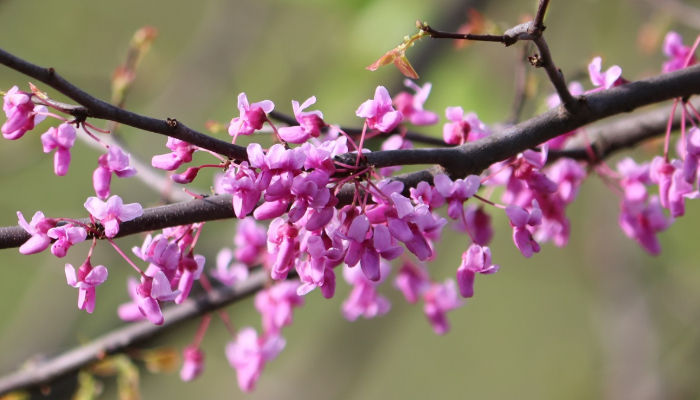Strategic Flowering

If you look up at the bare branches of trees in the area, you may see the beginnings of tiny green buds of leaves beginning to burst. Other trees, however, may bear full-fledged flowers on their otherwise naked limbs. Why do some trees flower before sending out leaves, while others don’t flower until much later in the season?
Trees, after they lose their leaves for the winter, maintain a supply of carbohydrates and sugars throughout their dormant period, which can be drawn on for producing new growth when the weather warms up. Some trees, known as hysteranthous, use those initial reserves to produce flowers, while neighboring species may not flower until after their leaves have grown (proteranthous).
There are many advantages to flowering early: for wind-pollinated flowers, the absence of leaves allows pollen to move freely and find flowers without interference, while flowers that rely on bees and other insect pollinators benefit from greater visibility and access, as well as being in high demand for these hungry helpers while other flowers are scarce. These trees get the hard work of reproduction over with quickly, and can focus on growing and replenishing their stores throughout the rest of the growing season.
This strategy is not without its risks, as many gardeners are keenly aware. A late cold snap can damage or kill the flowers that the tree just expended precious energy to produce, forfeiting the opportunity to reproduce this season.
Trees, like all other living organisms, have developed an amazing variety of strategies for life and reproduction, all of which have been successful (up to this moment, at least!). Changing climate will bring new challenges and pressures, and those species best able to adapt will come out ahead. Meanwhile, such diversity presents a spectacular show for us humans to enjoy throughout the seasons.
Originally published in Sycamore Greenway Friends.
Tags: climate change, Melissa Serenda, tree flowering

